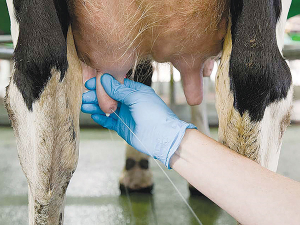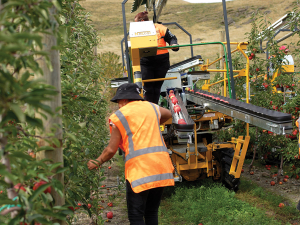Mastitis is the inflammation of the mammary gland which generally occurs as a result of white blood cells being released – the body’s response to invasion by bacteria, usually via the teat canal.
Over 200 different micro-organisms have been shown to cause intramammary infections, but most of the economic losses are associated with staphylococci, streptococci and coliform bacteria.
The microorganisms that most frequently cause mastitis are often categorised as either environmental or contagious pathogens, although organisms can show characteristics of both groups.
The root words contributing to the term mastitis are mast (udder/ breast) and itis (inflammation). Some people think of the udder as a bag of milk and mastitis a problem when the milk goes bad, but that is only part of the story.
The udder is in fact a very fleshy tissue, and while it has tiny milk producing pockets (alveoli) and milk ducts, the vast majority if it is cells and blood vessels. Therefore when the udder gets inflamed we have an inflamed tissue, or an inflamed organ (which, believe it or not, is classified as a skin gland by those in the know).
Being a skin gland, the only way infection can reach the udder is from the outside.
The teat end is designed to keep bacteria and other nasties (such as yeasts, e.g. thrush) on the outside.
It has a tight circular ring (sphincter) and sticky layers of keratin to stop would be intruders in their tracks. Infection only occurs when the teat canal is open/damaged and there is significant challenge (numbers of bacteria) on the outside.
Environmental
Exposure of the teat surface to environmental bacteria occurs mainly between milking times.
Sources of environmental bacteria like Strep. uberis include faeces, genital discharges, bedding material, feedstuffs, soil and water.
These bacteria cannot practically be eliminated from the cow’s environment, and the teat-end in particular is often in prolonged and close contact with some of these materials. Once udder infections with these environmental bacteria are established within the herd, transmission from infected quarters to other quarters and cows can occur at milking time.
Contagious Mastitis
Contagious bacteria often stem from an infected udder. However, bacteria such as Staph. aureus also readily colonises the teat canal and chapped or sore teat skin and may survive at other sites on the cow.
Contagious bacteria are primarily spread at milking time, when bacteria from infected quarters is spread to other quarters by splashes of milk during stripping, or by the hands of operator’s and milking machines.


















